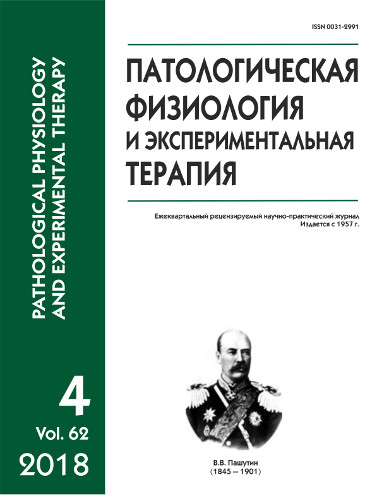Effect of penol on the GABAA receptor-coupled Cl⁻/HCO₃⁻-ATPase from rat brain in in vitro/in vivo experiments
Abstract
Phenol (hydroxybenzene) is a toxic substance with a neuroparalytic nature of action. One of the clinical signs of the manifestation of the effect high doses of phenol on animals is convulsive activity, the molecular mechanisms of which remain unclear. Aim. In order to clarify these mechanisms, in the present work we investigated the role of Cl⁻/HCO₃⁻-ATPase, which is involved in GABAA receptor-coupled ATP-dependent Cl⁻-transport through the plasma membranes of the neurons of animals brain. Results. In vivo studies have been shown that after intraperitoneal injection of phenol at a dose of 300 mg/kg to the animals, a convulsive reaction is observed, while the Cl⁻/HCO₃⁻-ATPase of the rat brain is not detected. In in vitro experiments, it was established that phenol (500 мM) completely inhibits the functional activity of the Cl⁻/HCO₃⁻-ATPase of the neuronal membranes from rat brain. It was assumed the important role of neuronal Cl⁻/HCO₃⁻-ATPase in the pathogenesis of phenolic neurotoxicity and the manifestation of convulsive responses in animals.






